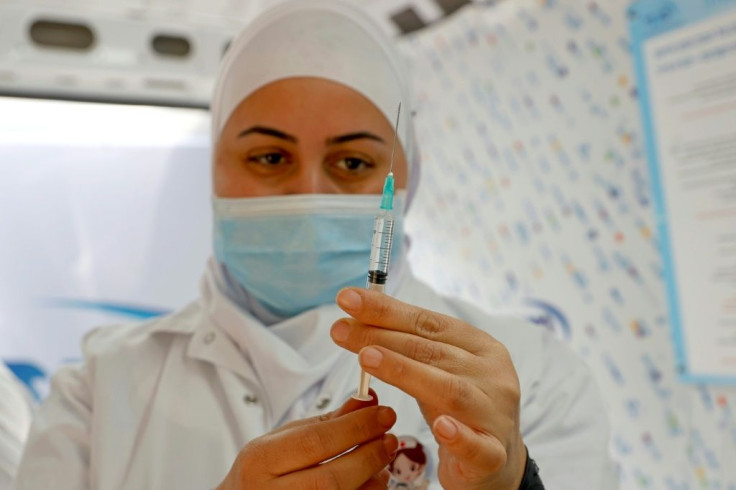COVID-19 Vaccine Could Help End Long-Term Symptoms, Patients Say
KEY POINTS
- Some COVID-19 patients said their long-term symptoms subsided after getting vaccinated against the virus
- About 10% to 30% of people who are diagnosed with COVID-19 suffer from long-term symptoms, a report says
- Some researchers are preparing to study the connection between vaccination and long-term COVID-19 symptoms
Coronavirus vaccines may not only lower the risk of infection but also provide a solution to long-haul COVID-19 patients. Some patients said the lingering symptoms they've been experiencing long after recovering from the virus subsided after getting vaccinated, a report says.
Around 10% to 30% of people who test positive for COVID-19 suffer long-term symptoms in what is referred to as long-COVID or long-haul COVID-19, USA Today reported. However, a number of these patients, including 34-year-old Brooklyn therapist Arianna Eisenberg, said their symptoms went away hours after receiving a COVID-19 vaccine, The Washington Post reported.
Eisenberg said she was still suffering from chronic fatigue, insomnia, soaking sweats, brain fog, and muscle pain eight months after being diagnosed with COVID-19. Thirty-six hours after receiving her second dose, however, she said her symptoms disappeared and haven't returned.
“I really felt back to myself,” she said, “to a way that I didn’t think was possible when I was really sick.”
Eisenberg's story doesn't seem to be an isolated case as several have taken to social media to share their delight over their symptoms reportedly disappearing almost overnight after their vaccinations.
Brent Boschetti, a 44-year-old medical sales rep in Los Angeles, said his symptoms — loss of sense of smell and taste, heart palpitations, severe migraines, breathing difficulty, fatigue, muscle and joint aches — continued to return again and again in the months after he was diagnosed with COVID-19 in March 2020. However, he told USA Today that "something just cleared, whatever was lingering in me," within a day of getting vaccinated.
Experts said there is still much mystery surrounding this event and they are still chasing yet another puzzling clinical development that seems to elude them to date.
Steven Deeks, an infectious-disease physician at the University of California at San Francisco, said one thing health experts are sure about is that a number of COVID-19 patients experienced long-term symptoms after being diagnosed with the disease.
“The only thing that we can safely assume is that an unknown proportion of people who acquire SARS-CoV-2 have long-term symptoms,” he said. “We know the questions. We have no answers. Hard stop.”
These questions include how would vaccines help treat lingering symptoms and whether long-haulers are experiencing a placebo effect from the vaccine, per Washington Post.
Clinicians have yet to come to a consensus on the definition of "long-haul COVID-19" due to the lack of information surrounding the phenomena. To date, doctors and scientists are still unable to identify how many people have it, what the symptoms are and who tends to develop problems that persist.
However, Akiko Iwasaki, a professor of epidemiology and immunobiology at Yale, and colleagues are currently preparing to study if vaccination makes symptoms subside, whether for the short-term or permanently.

© Copyright IBTimes 2024. All rights reserved.





















